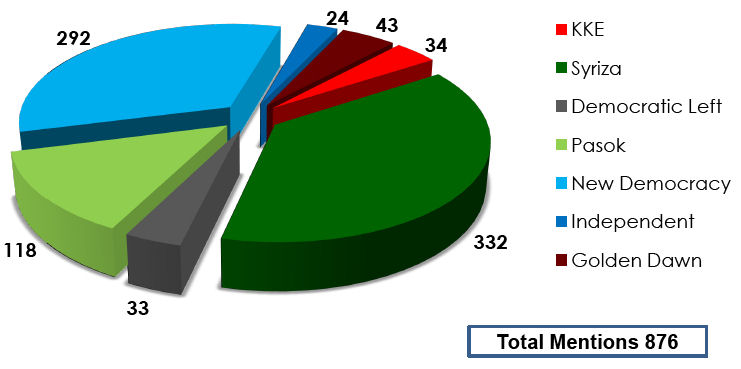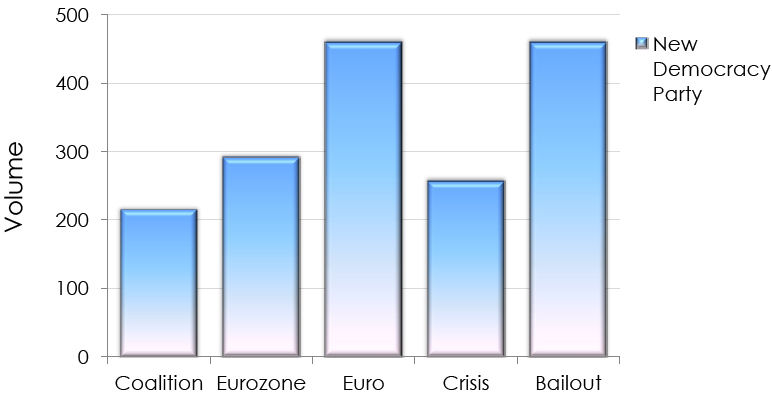The UK media watched the Greek elections with interest, focusing particularly on Syriza, the party that strongly advocated refusing Greece’s multibillion-euro bailout deal. The election was considered decisive as to whether Greece would remain in the 17-nation joint euro currency.
The party that won most seats in the election, 129, was the New Democracy party, which is more in favour of the Greek bailout deal. You could almost hear a sigh of relief when this the less radical party won the majority vote.
Share of voice

Source: The Greek Election: UK Online Media Analysis (21st May - 17th June 2012), Echo Sonar
Apart from the two main parties, New Democracy and Syriza, the media focus on all other parties in the election roughly coincided with the number of seats they won. The party that was next in the media spotlight was the main-centre left party Pasok, which gained 33 seats. Golden Dawn, the far-right neo-Nazi party gained some critical media attention, and 18 seats. One particular story, concerned an assault by a Golden Dawn supporter on a rival politician from Syriza. The bbc.co.uk reported on 7 June: “Greek prosecutors have issued an arrest warrant for the spokesman of the far-right Golden Dawn party after he slapped a left-wing politician in the face on live television.”
Key topics within the news

Source: The Greek Election: UK Online Media Analysis (21st May - 17th June 2012), Echo Sonar
Looking at the content of the coverage:
How the Greek elections would affect the Euro was a key subject of debate in the UK media. Telegraph.co.uk wrote on 17 June: “The fate of the euro was hanging in the balance after a rerun of the Greek elections failed to produce a strong government with a mandate to deliver the country’s austerity programme.”
There was much discussion over the future of the bailout package for Greece, with fears that this would be doomed should Syriza win. The bbc.co.uk reported on 18 June: “World leaders have welcomed the narrow election victory of Greece's broadly pro-bailout New Democracy party and urged Athens to form a cabinet quickly. The eurozone group said reforms were Greece's ‘best guarantee’ to overcome tough economic and social challenges.”
How the coalition would come together was another hot subject straight after the election. On 18 June it was reported on Guardian.co.uk: “The most likely next step is for New Democracy to try to form a coalition with Pasok, the socialist party that came third with 12.2 per cent of the vote. Together they would have 162 of the Greek parliament's 300 seats.”
Methodology
PRmoment asked Echo Sonar to analyse all UK online media coverage of the Greek election. The research period was 21 May to 17 June. Metrics included share of voice, leading topics and volume charts.
PRmoment Leaders
PRmoment Leaders is our new subscription-based learning programme and community, built by PRmoment specifically for the next generation of PR and communications leaders to learn, network, and lead.
PRmoment LeadersIf you enjoyed this article, sign up for free to our twice weekly editorial alert.
We have six email alerts in total - covering ESG, internal comms, PR jobs and events. Enter your email address below to find out more:








